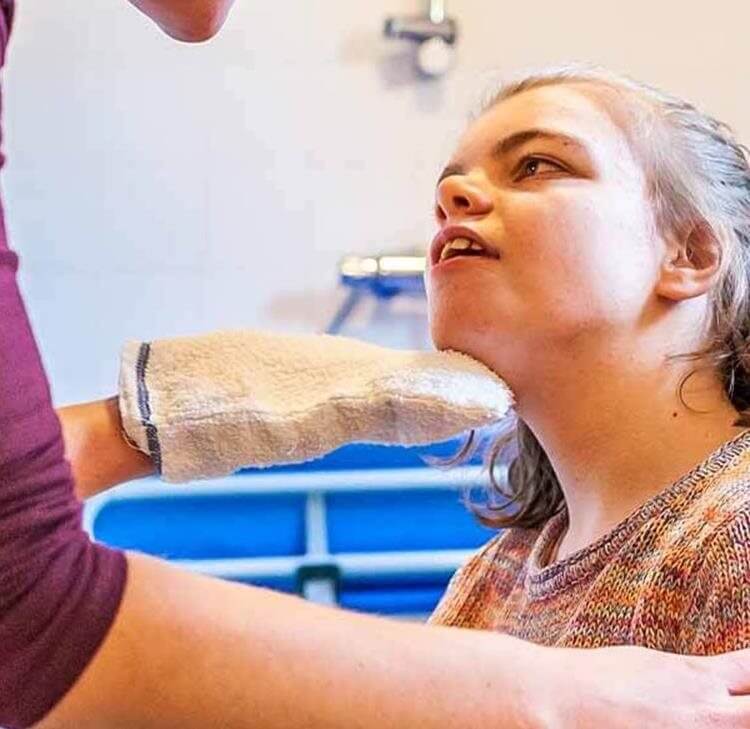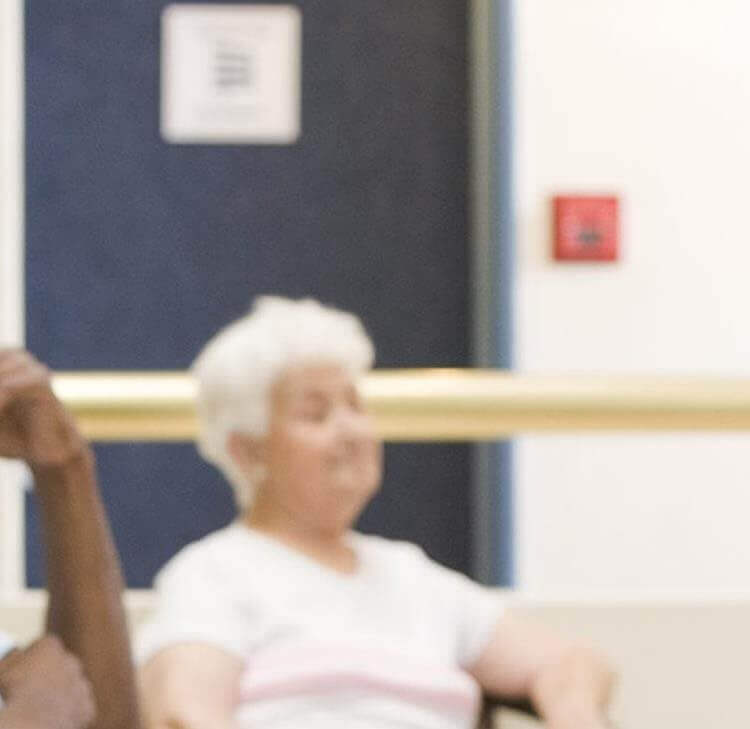On 18 October 2025, the government announced that it will undertake a consultation on the implementation of the Liberty Protection Safeguards (LPS) in the first half of 2026.
The LPS was developed as part of the Mental Capacity (Amendment) Act 2019 and was intended to replace the Deprivation of Liberty Safeguards (DoLS) in 2020. However, their implementation was postponed multiple times and in April 2023, the then Conservative government announced that they would be delayed “beyond the life of this Parliament”. They have never therefore been brought into force.
The consultation will seek the views of those who will be affected by LPS, such as families, carers and practitioners, including social workers, nurses, psychologists, and occupational therapists. It will be jointly run by the Department of Health and Social Care and the Ministry of Justice. The responses from this consultation will be used to inform a revised Mental Capacity Act Code of Practice, which has not been updated since it was first introduced in 2007, despite significant legal developments in this area.
What is wrong with DoLS?
The current DoLS system has faced criticism for many years for being overly bureaucratic and complex. It also has limitations in that it only applies to those over 18 and who are in a care home or hospital. Additionally, there is poor understanding and application of the law relating to DoLS by professionals, as highlighted in CQC’s recent report on 'The state of health care and adult social care in England 2024/25'. There are significant backlogs in the current system, meaning many people face long waits for DoLS authorisations, far beyond the statutory timeframe of 21-days. This poses a significant risk of people being unlawfully deprived of their liberty whilst awaiting an authorisation. Further, a DoLS authorisation only lasts a maximum of one year, meaning those in long-term care home placements have to undergo the authorisation process annually.
How LPS could streamline the authorisation process
We have outlined the LPS system in previous articles, such as 'Liberty Protection Safeguards: What are they and will they ever happen?' from March 2022. It is unclear at this stage whether the LPS will remain as currently drafted. It seems likely that some changes will be made to the framework following the results of the consultation
Northern Ireland Reference case
The Labour government has said very little about LPS since coming into power in July 2024. Its renewed engagement with LPS is clearly linked to Northern Ireland’s recent challenge to the Supreme Court’s judgment in Cheshire West regarding the ‘acid test’ and what is considered a ‘deprivation of liberty’. The UK government has been granted permission by the Supreme Court to intervene in this case.
The Supreme Court has been asked to consider whether the Northern Ireland Minister of Health can lawfully revise the DoLS Code of Practice, issued in Northern Ireland under the Mental Capacity Act (Northern Ireland) 2016. The revisions would allow individuals aged 16 and over, who lack decision-making capacity, to be considered as consenting to their confinement through expressing positive wishes and feelings. This would mean their circumstances do not fall within the scope of Article 5 of the European Convention on Human Rights (ECHR) and that they are not being deprived of their liberty.
However, this position is at odds with the Supreme Court ruling in Cheshire West, where it was held that those lacking capacity to consent to their care arrangements cannot give valid consent to their confinement and will therefore be deprived of their liberty if they are confined for more than a negligible period and their confinement is imputable to the state – even if they are content with their confinement and show no desire to leave. The Attorney General for Northern Ireland is therefore seeking clarity on whether the Minister can exercise his functions under the MCA (Northern Ireland) 2016 so as to revise the DoLS Code of Practice as outlined above, or whether the Minister is precluded from doing so by the Cheshire West judgment.
The Supreme Court will therefore be considering what constitutes ‘valid consent’ for the purposes of Article 5 ECHR, and whether it equates to having the relevant mental capacity to do so, or if it has a wider interpretation. The Court is also being asked to consider to what extent, if any, the decision of the Supreme Court in Cheshire West will need to be revisited.
Wider implications
The decision potentially has very considerable practical implications across the United Kingdom. If the proposed definition of valid consent is adopted, it is estimated that the number of those considered to require a DoLS authorisation in Northern Ireland would be reduced by 25%. In England and Wales, it is estimated that DoLS applications would be reduced from 350,000 per year to 250,000. It would also reduce the number of applications required for judicial authorisation of deprivation of liberty in other contexts from (around) 60,000 to (around) 45,000.
In terms of timing, the Supreme Court’s judgment on the Northern Ireland Reference case could take months to be published. It is likely that the government will wait for clarity before launching the consultation in the first half of 2026.
Summary
In the meantime, those working with DoLS must continue navigating the imperfect system as it currently stands. Whilst the consultation represents a significant step forward, the timeline for LPS implementation remains uncertain, particularly given the pending Supreme Court decision in the Northern Ireland Reference case. Browne Jacobson will keep you updated on the consultation as it is announced and progresses, and will continue to monitor developments in this area.
Contact

Mark Barnett
Partner
mark.barnett@brownejacobson.com
+44 (0)330 045 2515
You may be interested in
Legal Update - Mindful insights
Mindful insights: February 2026
Press Release
Mental Health Act 2025 new provisions come into effect: Legal comment
Legal Update - Mental Health Act 2025
The Mental Health Act 2025: Provisions coming into force in February 2026
Legal Update - Mental Health Act 2025
Mental Health Bill receives royal assent
Press Release - Mental Health Act 2025
Mental Health Act 2025: Legal comment as Bill receives royal assent
Legal Update
Liberty Protection Safeguards: 2026 consultation announced and Northern Ireland Cheshire West challenge
Legal Update - Mindful insights
Mindful insights: October 2025
Legal Update
Deprivation of liberty case: Effective multi-agency collaboration
Legal Update - Mindful insights
Mindful insights: June 2025
Opinion
The Court of Appeal explains why a local authority cannot consent to the confinement of a looked after child
Legal Update
Navigating the complexities of deprivation of liberty for children under 16
On-Demand
Pupillage open evening
Legal Update
Court of Protection update for local authority lawyers
Legal Update - Mental Health Act 2025
UK government announces new Mental Health Bill to modernise the Mental Health Act 1983
Legal Update
Inquests and Article 2 of the ECHR: A practical guide following the case of Maguire
Legal Update
Liberty Protection Safeguards (LPS) update – June 2023
Legal Update
Restricting a patient’s use of their mobile phone – is it lawful?
Legal Update
LPS consultation and ‘go live’ planning
On-Demand - Shared Insights
Shared Insights: Prolonged disorders of consciousness
Legal Update
Liberty Protection Safeguards: points to note as consultation period continues
Deprivation of Liberty Safeguards was due to transition to Liberty Protection Safeguards in October 2020 but delayed due to the pandemic. While the public consultation has now closed and we’re still unclear of what the final legislation and code will look like, it’s worth noting and keeping a watching brief.
On-Demand
LPS - it's out - what do you need to know? Part 3: the practicalities of implementation
This on-demand session deals with what we now know so far about the finer detail of the LPS proposals, particularly focussing on the practicalities of implementing the LPS system.Legal Update
The Liberty Protection Safeguards – how can we help?
The Liberty Protection Safeguards (LPS) were introduced in the Mental Capacity (Amendment) Act 2019 and will replace the Deprivation of Liberty Safeguards (DoLS) system. The LPS framework aims to deliver improved outcomes for people who are or who need to be deprived of their liberty.
On-Demand
LPS - it's out - what do you need to know? Part 2: the most significant changes
This on-demand session considers some of the most significant changes to the Code.Legal Update
Liberty Protection Safeguards – It’s out: MCA LPS Consultation
Following on from the first webinar in the Liberty Protection Safeguards (“LPS”) series delivered by Mark Barnett and Chris Stark, the key points below from the webinar are summarised below.
On-Demand
LPS - it's out - what do you need to know?' Part 1: Regulations and Code of Practice
This on-demand session deals with what we now know so far about the finer detail of the LPS proposals, particularly focussing on the practicalities of implementing the LPS system.Opinion
LPS - it’s out
The long-awaited draft Mental Capacity Act Code of Practice, including the Liberty Protection Safeguards (“LPS”), has landed.
Legal Update
Is a review of Article 2 application in inquests on the horizon?
The Supreme Court has granted permission to appeal the decision of the Court of Appeal in the case of Jacqueline Maguire v HM Senior Coroner for Blackpool and Fylde in which the Coroner ruled that Article 2 of the European Convention on Human Rights (the right to life) was not engaged.
Legal Update
Liberty Protection Safeguards: What are they and will they ever happen?
On-Demand - Shared Insights
Shared Insights: Mental Health Units (Use of Force) Act: What does it mean for hospitals in the mental health and acute sector?
On-Demand - Shared Insights
Shared Insights: Mental Health in Maternity
Legal Update
The Liberty Protection Safeguards: brief update
The Liberty Protection Safeguards (LPS) will be used to authorise the proportionate and necessary deprivation of liberty for people aged 16 and above who lack the mental capacity to consent to their care arrangements.
On-Demand
Mental Health and Court of Protection Legal Update webinar
Watch now on-demand our Mental Health and Court of Protection Legal Update webinar, there have been some interesting recent legal developments in this area and topics that were covered during the session.
On-Demand - Shared Insights
Shared Insights: Safeguarding Forum - Safe discharge and conveyance of patients
On-Demand - Shared Insights
Shared Insights: Mental health patients: learning from incidents and inquests
On-Demand - Shared Insights
Shared Insights: the future of interaction between health and social care
On-Demand - Shared Insights
Shared Insights: Managing complex patients
Legal Update
High Court confirms it's unlawful for assessments for detention under s.2, s.3, s.4 and s.7 Mental Health Act 1983 to be conducted remotely
On 22 January 2021, the High Court confirmed that under the Mental Health Act 1983, the phrases “personally seen” in s. 11(5) and “personally examined” in s. 12(1) require the physical attendance by the AMHP and s.12 Doctor on the patient when an assessment is being carried out for detention under the Act.
Legal Update
Coronavirus – new legislation and guidance relevant to practitioners working with the Mental Health Act and the Mental Capacity Act
We are seeing an unprecedented situation in the Mental Health Act and the Mental Capacity Act, which central Government, the NHS and courts are responding to with speed.
Published Article
Protecting the vulnerable – the Liberty Protection Safeguards
In a little under a year, new legislation will be introduced which will have far reaching implications for providers and commissioners of health and social care.




















